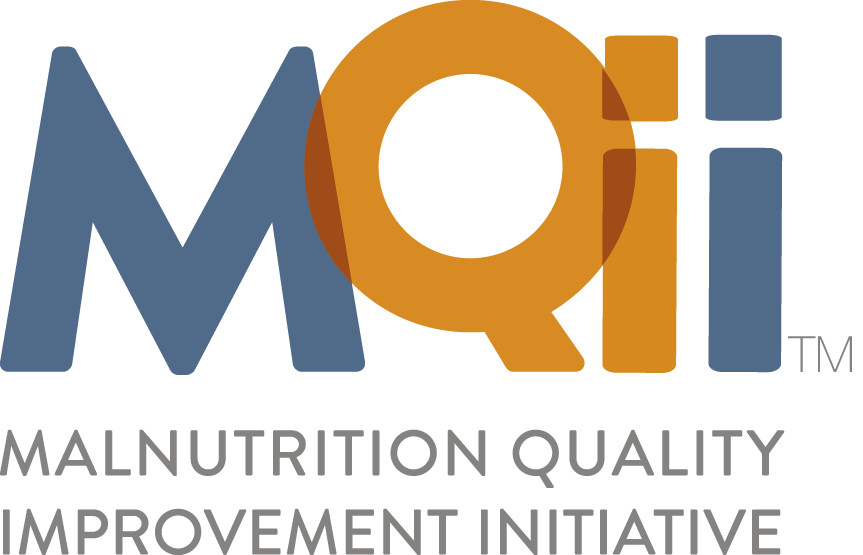Proper nutrition plays a critical role in optimizing physical function, accelerating recovery from illness, and improving overall health outcomes. The importance of nutrition is magnified for older adults, for whom malnutrition or food insecurity can have an even greater effect on their health outcomes than for younger populations. The essential nature of nutrition in the care of hospitalized older adults is recognized in the new Age-Friendly Hospital quality measure introduced in the Hospital Inpatient Quality Reporting (IQR) Program as of 2025. The measure requires participating hospitals to report their progress in implementing evidence-based care strategies to improve outcomes for older adults, specifically including screening for malnutrition and implementing nutrition care plans.
Core Components of Age-Friendly Care and the Age-Friendly Hospital Measure
The Age-Friendly Hospital measure was developed based on foundational work from several organizations, including the Age-Friendly Health Systems movement, led by The John A. Hartford Foundation and the Institute for Healthcare Improvement (IHI), the Geriatric Surgery Verification program from the American College of Surgeons, and the Geriatric Emergency Department Accreditation program from the American College of Emergency Physicians. These initiatives have developed frameworks for optimizing care for older adults in the hospital, with a focus on person-centered care and preventing complications. For example, IHI’s “4Ms” framework is a set of core elements of high-quality care for older adults that should be delivered consistently:
- What Matters: Aligning care with the older adult’s goals and preferences.
- Medication: Avoiding potentially inappropriate medications and ensuring proper medication management.
- Mentation: Preventing, identifying, treating, and managing delirium, depression, and dementia.
- Mobility: Ensuring older adults move safely every day to maintain function.
Nutrition is a cross-cutting element that supports each of these domains, and is also incorporated into the screening and intervention components of the 5 requirements of the Age-Friendly measure:
- Eliciting patients’ healthcare goals
- Responsible medication management
- Frailty screening and intervention (specifically: mobility, mentation, and malnutrition)
- Social vulnerability screening and intervention (specifically: social isolation, economic insecurity, limited access to healthcare, caregiver stress, and elder abuse)
- Age-friendly care leadership
Screening Patients and Implementing Diet Plans
Nutrition screening and intervention should be embedded into routine care for older adults. For hospitals participating in the hospital IQR program, adopting and reporting on the Global Malnutrition Composite Score (GMCS) quality measure can help benchmark and ensure the delivery of quality malnutrition care. This is because the GMCS aligns well with the Age-Friendly measure.
Early identification of malnutrition risk allows hospitals to tailor interventions that prevent deterioration and support recovery. Steps to enhance nutrition in age-friendly care include:
- Standardized Screening: Utilize validated tools such as the Malnutrition Screening Tool (MST) or the Mini Nutritional Assessment (MNA) to identify at-risk patients upon admission. The Age-Friendly Hospital measure reinforces the need for standardized screening to ensure consistent and effective identification of malnutrition risk.
- Comprehensive Assessment: Conduct a detailed nutrition assessment, including dietary intake, weight history, and functional status, to develop personalized nutrition care plans.
- Dietary Interventions: Implement individualized nutrition care plans that account for dietary restrictions, swallowing difficulties, and specific medical conditions. The measure encourages evidence-based interventions to improve nutrition-related outcomes, particularly in older adults with complex care needs.
- Care Transitions: Ensure continuity of care by communicating nutrition plans to post-acute and outpatient care teams to prevent gaps in nutrition support. The measure specifications highlight the importance of documenting and transitioning nutrition care to improve recovery and prevent readmissions.
How Clinical Nutrition Managers Can Support Age-Friendly Care
Clinical Nutrition Managers (CNMs) play a vital role in advancing age-friendly hospital initiatives. Their expertise can directly contribute to meeting the nutrition component of the Age-Friendly Hospital measure by:
- Engaging in Hospital Age-Friendly Initiatives: Participating in interdisciplinary teams working on implementing the 4Ms framework.
- Educating Staff: Training clinicians on the importance of nutrition in age-friendly care and how to incorporate nutrition screening into daily workflows.
- Enhancing Data Collection and Reporting: Collaborating with hospital quality teams to track nutrition interventions and support attestation to the Age-Friendly Hospital measure.
- Advocating for Policy and Protocol Development: Driving the integration of nutrition protocols into hospital policies to ensure standardized, evidence-based nutrition care.
Conclusion
Integrating nutrition into age-friendly care is essential for improving health outcomes in older adults and ensuring hospitals meet quality requirements. The Age-Friendly Hospital structural measure presents an opportunity to elevate the role of nutrition in patient care, and CNMs are well-positioned to lead these efforts. By embedding nutrition into quality improvement strategies, hospitals can enhance patient-centered care, reduce complications, and promote healthy aging. The measure specifications further reinforce the need for structured nutrition care processes, as supported by the GMCS, positioning nutrition as a fundamental component of delivering high-quality, age-friendly hospital care.
